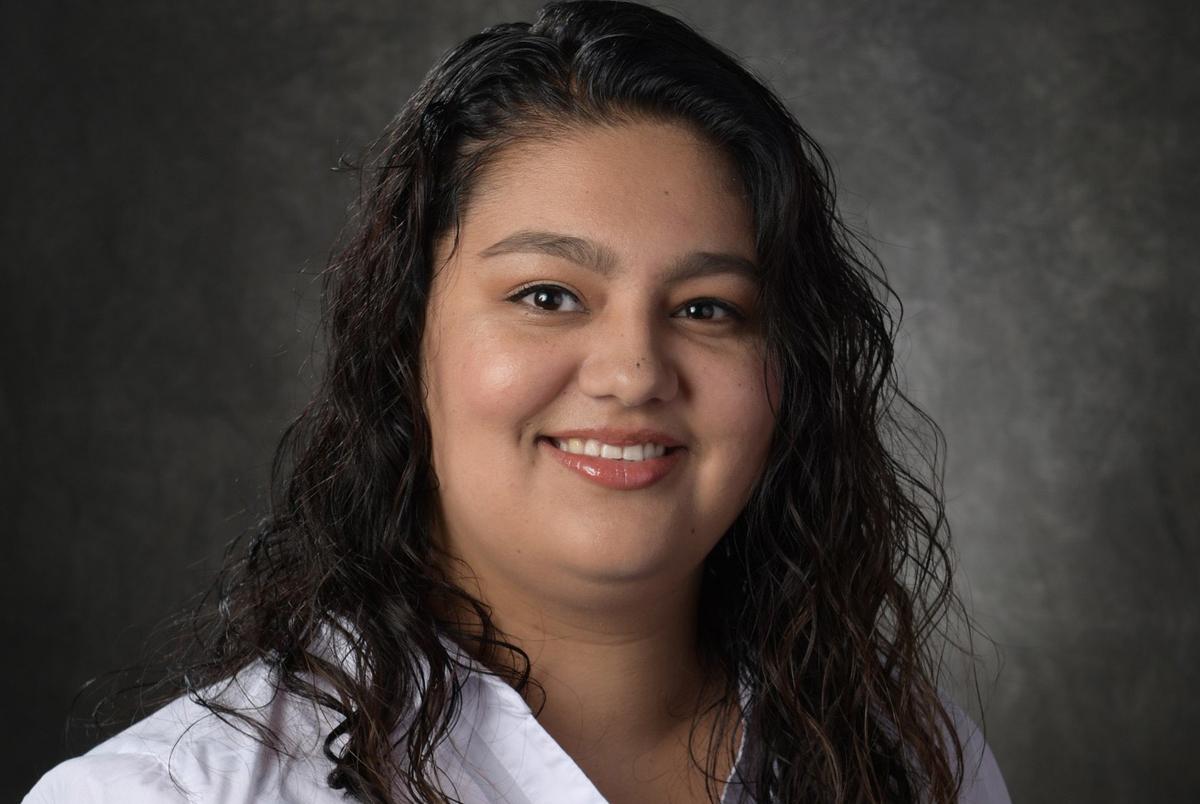With a Counseling Career Ahead of Her, Patricia Garcia Aims to Cultivate Understanding

When she enrolled as an undergraduate student at the University of New Mexico, Patricia Garcia envisioned a career in medicine.
“For as long as I could remember,” she recalls, “I had always wanted to be a doctor. And then I started taking psychology classes for fun, and I realized it was something I was passionate about.”
After all, she says, her psychology classes tapped into two deep-seated desires: “I could help people, and I could also understand people.”
She went on to pursue a double major in psychology and Spanish, graduating in 2016. Looking ahead to June, when she receives her hard-earned master’s degree in counseling psychology from the University of Denver, she’s poised to help and understand people all the better.
Armed with her newly minted degree, Garcia plans to return to New Mexico to work with populations that face the same challenges she once confronted. As a self-described Third Culture kid, she grew up an American citizen in a household headed by two immigrant parents rooted in their home culture. Negotiating the demands of the two required “a fine balance.”
“You don’t fit in here, and you don’t fit in there,” she says. With questions of identity paramount in her youth and college years, she sought a stronger sense of who she is and how she can contribute.
“For a long time I couldn’t figure out how I identify as a Latina,” she says. Today, she knows that, for her, being a Latina means helping others understand their identity and channel their talents into fully realized lives.
Her sense of her own talents and powers was refined at the Morgridge College of Education, she says, noting that her classroom experiences were reinforced by opportunities to put textbook learning to work in real-world settings.
“One of the big things that this program does is we immediately get immersed in doing counseling,” she says. Garcia especially enjoyed testing her counseling skills at The Bridge Project, a free after-school and tutoring program run by DU’s Graduate School of Social Work.
“I was able to work with a lot of immigrants and people from different cultures and countries. It was this melting pot of cultures,” she says. “It was pretty much interacting with the kids from the time you got there until you left.”
Julia Roncoroni, an assistant professor in the Department of Counseling Psychology who mentored Garcia over the last two years, considers her student ready for the many challenges that a counseling career is sure to entail.
“Paty is amazing,” Roncoroni says. “She brings so much self-awareness to her interpersonal interactions. She approaches others with caring and compassion. She is reflective, hard-working and eager to learn. These skills make her an outstanding counselor who is respected by her clients as well as her peers, faculty and supervisors.”
Garcia came to DU both because it was relatively close to home and because she could picture herself strolling the grounds and living in Denver. “As soon as I stepped on the camps, I knew: This is the place for me.”
She leaves DU with a host of honors for her resumé. Chief among them is a prestigious Services for Transition Age Youth (STAY) Fellowship from the American Psychology Association’s Minority Fellowship Program. It prepares recipients to provide mental health services to youth ages 16 through 25 and their families.
She also served as a community-engaged fellow with DU’s Center for Community Engagement to advance Scholarship and Learning. In that role, she worked on questions related to health equity, meeting with community groups to learn about what needs are and are not being met and why.
“It has definitely been an eye-opener,” she says, noting that through the process she connected with people from diverse backgrounds — among them many migrants — and learned about their specific challenges. In doing so, she came to “acknowledge my own privilege” and understand how people from different backgrounds bring varying perspectives to everyday realities.
“With counseling, I can sit down with a person and really get to know a person’s needs,” she explains. That’s a prerequisite for delivering lasting help. “And I have always wanted to do something to help people.”







